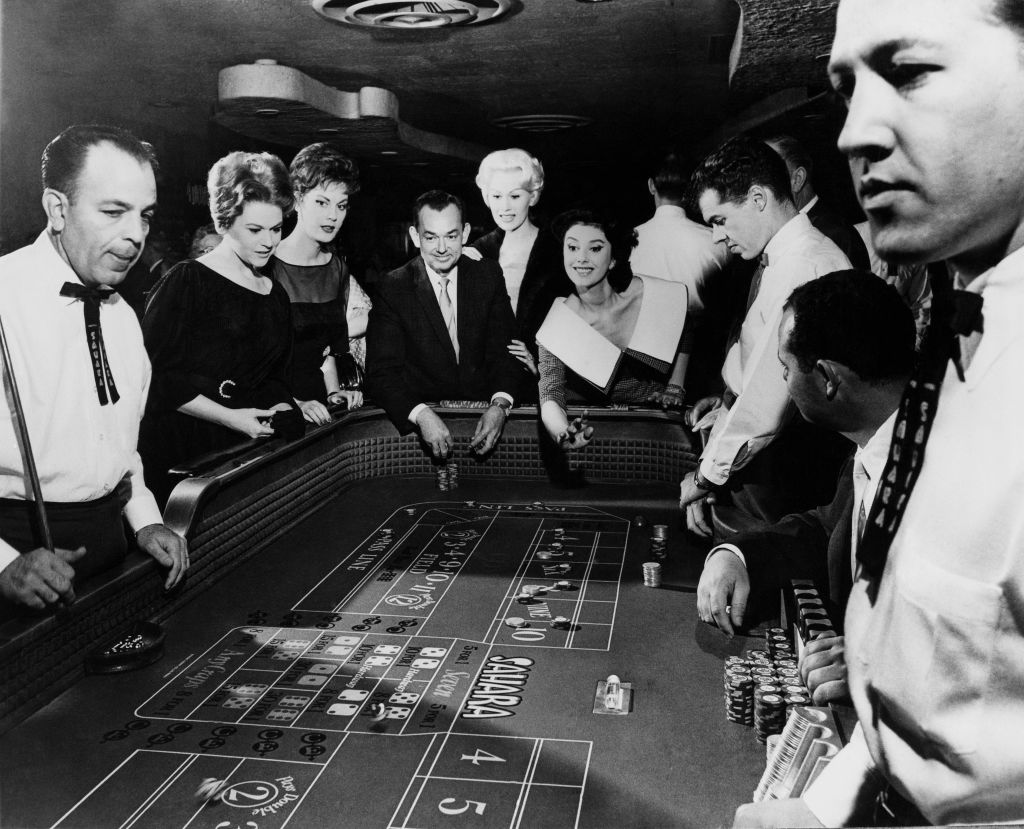Once again, it is time for the Defector staff to go into seclusion for our annual company meetings and fall frolic. This year we are gathering in Atlantic City, America's abandoned playground. We decided to hold a mini theme week to keep the site robust and full of blogs while we're in meetings. This year's theme: Risk!
As a general rule, risk is overrated, both as a spur to future success and as a general way of life. The myth that risk begets reward has always been a self-aggrandizing lie told by the ones who won and stood on the skulls of the ones who didn't. The thought that risk is an excellent provider of adrenaline is actually provable nonsense. Risk, put simply, sucks.
But if you define "risk" as "personal involvement" rather than "could lose something you will regret losing later," then sure, why not? One of the great flaws of the online betting surge is that all the transactions can be done in your home with only a rudimentary knowledge of your phone's capabilities, presumably because there is something useful in the knowledge that you can lose too much money betting silly parlays in your underwear.
Which brings us, against our will in many cases, to Atlantic City, the reluctant host for Defector's annual navel-gazing boondoggle. And by that we mean talking about the future of the business in the few hours we don't spend fleecing ourselves at various tables, machines and sports theatres. We could zoom the meetings and achieve the same central aim; hell, we could do it by mail. But the gambling can, and should, only be done on site.
This seems like old-coot reasoning, but there is a fundamental difference between watching your money grow or diminish on your phone and having to make the effort to sweep it toward you or shove it away. Your entire body is part of the transaction—well, okay, maybe not your feet. That would be a move of theatrical aggressiveness that would convince the dealer to call the pit boss. And it is that full commitment of body, mind and wallet that makes gambling worthwhile, and elevates the risk to nearly the level of the reward, which your author learned to his own cost some years ago, before there was online anything, let alone in-game betting.
A friend of mine was going to Lake Tahoe with her family, a bit of information that inspired your faithful typist to assemble a list of baseball games that needed financial support—yes, they had parlays back then, smartass—and provide her with the cash required to bet them at one of the area's considerable casinii. Fast-forwarding past the turgid parts, the five-way parlay hit. This was back in the days where you could bet a starting pitcher with confidence—to be fair, this was back in the days when there were starting pitchers.
Unfortunately (well, only for your faithful protagonist, to be fair), the friend was waterskiing on the lake when it was time to place the bets, so no bets were placed, no parlay was actually created, no windfall fell. The only exchange of money was said friend returning the money she'd been presented to lay the bets. The lake was allegedly excellent for skiing, if that helps.
A number of things could have happened at this juncture. The friend could have been pressed to pay the money that would have been won, which would have wrecked the friendship, was not legally actionable and would never have happened anyway. A lecture about one's word being one's bond could have resulted, but it would have been as tedious in the presentation as in the reception. Besides, "the skiing was great" actually is a sufficient defense in any court of law, or should be.
Or a lesson could have been learned, and it was, specifically: If you want to lay a bet, the only way to do it properly is to do it yourself, in person, like an adult, looking at the other party face to face, or at least through a glass window with a slot in the bottom for cash-shoving. And the cash adds to the sensation that thrusting one's phone forward like some sugar-crazed preteen on your door at Halloween cannot replicate. The tactile part of betting makes it a worthier pastime, especially if the person booking your bet is trustworthy enough to pay promptly in victory and be paid modestly, but fully, in defeat. This works best in a local tavern, of course, but one can also find a level of satisfaction in more neutral environments. In a casino, of course, you're not making friends, but the upside is that the person behind the window isn't skiving off to go waterskiing with ne'er-do-wells like parents or siblings instead of promptly accepting your money or returning it with interest afterward.
This isn't a bad-beat story, by the way. Bad-beat stories are for people you would emigrate to avoid, because they are whiny, self-involved snivelfests that only inspire scorn and disdain in the people upon whom they are inflicted. It is provably true that bad-beat stories are the original inspiration for the acronym "STFU." No, this is a life lesson, one to be absorbed and lived. Betting is money management, knowing one's limits, discipline and honor, true, but more than anything else, it is entirely DIY. And that's why we're in Atlantic City. We are degenerates, sure, but we have our standards. There are three of them, by the way, and you can learn what they are by subscribing at the Accomplice Level. By then, we should be able to make them up for you.






